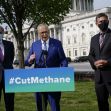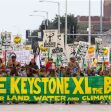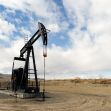The US Department of Energy (DOE) issued a final rule on December 4, 2020, that revises its responsibilities under the National Environmental Policy Act (NEPA). Previously, under NEPA, liquefied natural gas (LNG) transport license applications required an environmental review, but only sometimes. If the shipments were going to countries with whom the U.S. had no free trade agreement, like China, the review was required. The new rule makes environmental reviews unnecessary in applications for marine transport of domestically produced LNG.
The previously required reviews were meant to monitor the environmental impact of LNG, which has a “boil off,” referring to fuel that unavoidably returns to a gaseous state while the LNG is being shipped.
The DOE eliminated the review because:
1. The DOE is required by Section 3(c) of the Natural Gas Act to authorize the exports;
2. The environmental effects DOE must review are limited, starting specifically at the point of export and extending only to marine transport effects.
DOE is also removing reference to imported LNG from its NEPA regulations because the Energy Policy Act of 1992 gives the DOE no discretion regarding its approval of these imports. NEPA grants agencies the authority to identify categories of actions that have no significant effects and that the agency has no authority to prevent. After identifying such categories, the agency can then exclude them from review.
The rule was created following actions by the White House Council on Environmental Quality (CEQ) in July that worked to streamline and simplify the NEPA process. This work made it clear that an agency does not have to analyze or anticipate environmental effects it has no power to affect. DOE has no authority over the building or workings of natural gas export facilities, so their review of the actions of those facilities is unnecessary.
Furthermore, based on recent studies, the DOE determined that transportation of LNG by marine vessel does not have significant environmental effects. Most natural gas imports and exports are transported in this fashion.
The Trump administration has been working for nearly a year to change the federal approach to NEPA, which President Trump called a “regulatory nightmare.” The most recent change is an attempt to give the LNG industry a boost in the face of the slump in demand for global energy because of the pandemic. The administration has touted LNG exports as an alternative to gas being sent via pipeline from Russia to Europe.
“These changes will improve the efficiency of the DOE decision-making process by saving time and expense in the NEPA compliance process and eliminating unnecessary environmental documentation for these actions that DOE has determined normally do not have significant effects,” says the rule.
The rule will take effect on January 4, 2021, approximately two weeks before the inauguration. It is not outside the realm of possibility that President-elect Joe Biden will rescind the new rule in his early executive actions regarding the environment.
If the Biden administration scraps the rule, additional revisions would be necessary, and that could be a lengthy process. In the meantime, though, the rule could be repealed under the Congressional Review Act. That’s unlikely, as Congress has only a narrow Democratic majority at this point.
Overall, LNG products have not become de-regulated, and they will continue to be reviewed by the Federal Energy Regulatory Commission.






